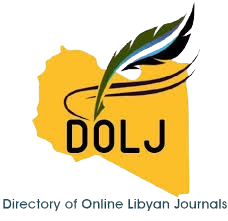Assessing Knowledge, Public Awareness, and Confidence Assurance of Apheresis Donors among Blood Bank Donors in Tobruk, Libya
DOI:
https://doi.org/10.64516/hjc43t92Keywords:
blood donation, apheresis, attitudes, whole blood donors, knowledgeAbstract
Background: Blood donation is a critical component of healthcare, and apheresis has emerged as an advanced technique for collecting specific blood components, such as platelets, plasma, and red blood cells. Despite its advantages, apheresis remains less well-known to the general public than whole blood donation. This study aimed to compare apheresis donors with whole blood donors in Tobruk, Libya, to assess their knowledge, public awareness, and confidence in the procedure. Methods: A cross-sectional survey was conducted among 36 blood donors in Tobruk, Libya, focusing on demographics, trust, concerns, and procedure understanding. Descriptive statistical analysis was used to compare apheresis and whole blood donors, while logistic regression analysis was used to identify factors influencing donor confidence and willingness to donate via apheresis. A p-value of <0.05 was considered statistically significant. Results: The study revealed that male donors are more likely to donate apheresis than female donors, with younger donors being more likely p < 0.05). Apheresis donors are generally more educated, with 50% having higher education compared to 40% of whole blood donors. Confidence in the apheresis device is higher among apheresis donors (80%). Concerns about infection and health safety are more common among whole-blood donors(30%). Conclusions: The study revealed that male donors are more likely to donate apheresis than females, with younger donors being more motivated. Apheresis donors have higher confidence in the device, but 15% report concerns about infection and health safety.
References
1. Donating Blood Benefits Both Recipients and Donors | HCA Houston Healthcare [Internet]. HCA Houston Healthcare.
2. Winters JL. Complications of donor apheresis. J Clin Apher. 2005;20(4):247–59.
3. Karaytuğ MO, Boyraz S. Attitudes and knowledge of apheresis donors in a tertiary hospital. Transfus Clin Biol. 2023;30(1):15–20.
4. Abolfotouh MA, Al-Assiri MH, Al-Omani M, Al Johar A, Al Hakbani A, Alaskar A. Public awareness of blood donation in central Saudi Arabia. Int J Gen Med. 2014;7:401–10.
5. Eltewacy NK, Elhadi R, Elzawawi A, Elmusrati M. Awareness and willingness to donate blood among university students in eastern Libya. Libyan J Med Sci. 2024;8(1):23–8.
6. Goldsmith DJ, Alsaadi M, Elmazny AG. Apheresis awareness and donor engagement in North African populations: A cross-sectional study. Afr J Transfus. 2023;12(2):89–96.
7. Sümnig A, Feig M, Greinacher A, Thiele T. Gender differences in whole blood donation: analysis of the donor base of the German Red Cross Blood Service. Transfus Med Hemother. 2018;45(5):308–13.
8. Madrona DP, Herrera MDF, Jiménez DP, Campos RR, Gómez EG, Romero EC. Women as whole blood and plasma donors: an analysis of the donation records of the Regional Blood Centre in Seville, southeastern Spain. Blood Transfus. 2014;12(Suppl 1):s11–20.
9. Majdabadi HA, Yarmohammadi H, Rakhshani F, Ansari-Moghaddam A, Dakhili Z, Moghaddam MB. Knowledge, attitude and practice regarding blood donation in Iranian population: A cross-sectional study. Transfus Apher Sci. 2018;57(1):118–22.
10. Eser E, Khorshid L, Yapucu Ü. Determination of the knowledge and attitudes of blood donors related to apheresis. Transfus Apher Sci. 2010;43(3):265–9.
11. Charbonneau J, Cloutier MS, Carrier É. Why do blood donors lapse or reduce their donation’s frequency? Transfus Med Rev. 2015;29(1):1–5.
Downloads
Published
Issue
Section
License
Copyright (c) 2025 Alkadafe Agelah, Hanan Mahdi (Author)

This work is licensed under a Creative Commons Attribution 4.0 International License.











